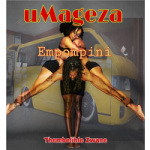“Pedagogy of the Oppressed” by Paulo Freire is a seminal work in the field of education that challenges traditional teaching methods and advocates for a more transformative and empowering approach to learning. We will delve into the key ideas presented in the book, exploring the concept of oppression, the banking model of education, and the path towards liberation through critical consciousness.
At the core of “Pedagogy of the Oppressed” is the concept of oppression and its profound impact on education. Freire argues that traditional education often perpetuates a system of oppression, where the roles of teachers and students are rigidly defined. He refers to this as the “banking model of education,” where teachers deposit information into passive students, treating them as empty vessels to be filled with knowledge.
According to Freire, this banking model reinforces a hierarchical and authoritarian relationship between educators and learners. It stifles creativity, critical thinking, and the agency of students. By merely receiving knowledge without engaging in a dialogue and critical reflection, students become objects rather than active subjects of their learning process.
Instead, Freire advocates for a more liberating and transformative pedagogy, one that encourages dialogue and participation. He introduces the concept of “problem-posing education,” where students and educators engage in a reciprocal process of teaching and learning. In this approach, both parties actively contribute to knowledge construction, empowering students to become co-creators of their education.
Critical consciousness, a central theme in the book, plays a crucial role in Freire’s vision of transformative education. He argues that oppressed individuals must develop critical consciousness to recognize and challenge the structures of oppression that shape their lives. By questioning and critiquing the social, political, and economic forces that perpetuate inequality, individuals can break free from the cycle of oppression.
For Freire, the goal of education is not just the transfer of information but the transformation of individuals and society. Education should foster humanization, allowing individuals to become more fully human and reach their true potential. It is through this transformative process that students can transcend the limitations imposed upon them and become agents of change in their communities.
In “Pedagogy of the Oppressed,” Freire also emphasizes the importance of dialogue as a fundamental aspect of the educational process. He argues that genuine dialogue is not a monologue imposed by one party onto the other but a collaborative exchange of ideas and experiences. Through dialogue, students gain a deeper understanding of themselves and their place in the world, fostering a sense of empowerment and agency.
Freire’s approach to education aligns with the principles of participatory democracy, where individuals actively engage in decision-making processes that affect their lives. He believes that education should prepare students to be active and responsible citizens who can contribute to a just and democratic society.
Moreover, Freire’s ideas have transcended the field of education and have been applied in various contexts of social transformation and liberation struggles worldwide. His work has influenced movements for social justice, community organizing, and empowerment of marginalized groups.
In conclusion, “Pedagogy of the Oppressed” by Paulo Freire challenges conventional educational paradigms and advocates for a liberating and transformative approach to learning. Freire critiques the banking model of education, which perpetuates a system of oppression and passivity, and proposes problem-posing education as a way to empower learners and foster critical consciousness. He emphasizes the importance of dialogue, participatory democracy, and humanization in the educational process. By encouraging critical thinking, agency, and active engagement, Freire’s vision of education seeks to liberate individuals from the chains of oppression and inspire them to become agents of change in their communities and beyond. His work continues to be an enduring source of inspiration for educators, activists, and advocates of social justice worldwide.
Relevant File technicalities:
. Name of Title: Pedegogy of the oppressed
. Author Name: paulo freire
. Language for Reading: English
. Supportive Formats: PDF/ePub
. Cost For Getting: Free to Download
. Genre: Bisexual Romance
. Series: None
. Price: Free
. Publish Date: 11 April,2023
Pedegogy of the oppressed by paulo freire Download PDF
Download your desired file snap on the button specified below to download Pedegogy of the oppressed by paulo freireThe download method is fully financed without any spammy or broken links with the infant quality of PDF and ePub. All the links on our servers are quick, clean, and free from panic and spammy advertisements. You may also like Thrall by PT Ambler PDF Download








